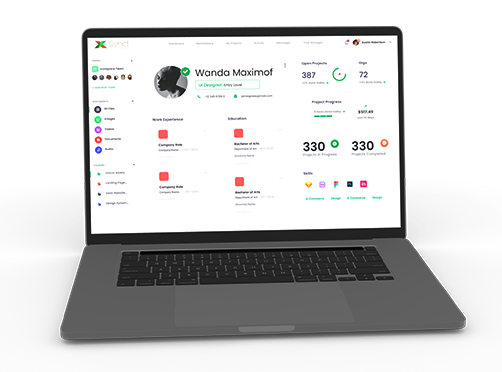Productivity Tools Are Getting Better, So You Can Achieve More with Less.
In the ever-evolving landscape of technology, our relentless pursuit of efficiency remains constant, especially for start-up founders and business owners, where every day is a deadline.
Since their inception in the 1980s, transitioning from simple utilities for writing, calendar management, and calculations to sophisticated platforms that enable global collaboration, productivity tools have been at the forefront of this transformation, changing how we live and work.
In our era of extensive automation, productivity tools have become indispensable for accomplishing tasks and keeping up with the world's pace. Furthermore, the rise of artificial intelligence is reshaping the future of these tools, paving the way for more efficient software that will further enhance global collaboration.
The evolution of productivity tools can be classified into three phases:

Despite these innovations, understanding your unique needs and how these tools can best serve you is crucial. Adopting a tool; simply because your competitors use it, it's by a large company, or that comes with a high price tag is not advisable. These factors do not necessarily guarantee improved productivity.
While reviews and recommendations hold value, understanding your key objectives is the primary step. It's about selecting a tool that aligns with your needs, not hastily following trends or recommendations.
Key factors to consider include:
1. Integrations

Always confirm whether your chosen tool is compatible with your existing system and offers integration options with other applications.
As many individuals seek third-party integrations to optimise their workflow, syncing new tools with those already in use becomes essential.
It becomes particularly significant when planning data migration, as it ensures the protection and recovery of your data. Avoid wasting time toggling between different apps by choosing a tool that seamlessly integrates with your current system.
2. Budget

While budget considerations are critical, you shouldn’t sacrifice efficiency for cost. The market has a variety of tools catering to different budgets. However, it’s important to note that pricier products often come with additional perks and functionalities.
Regardless of your budget constraints, there’s a tool for everyone. But remember, expensive doesn’t always mean efficient, and too cheap might raise red flags, choose wisely!
3. Ease of Use

I bet you have encountered software that has frustrated you and had to ditch it because I have! You don’t want to waste time in the cycle of adopting and ditching tools.
An ideal tool is intuitive, requiring minimal assistance for navigation. From locating essential features to renewing subscriptions, using the software shouldn’t be a task.
It’s crucial to select a tool that requires minimal time for your team to master, especially for start-ups where every day counts and time should not get wasted on complicated tools.
4. Functionalities

A tool with numerous functionalities can be enticing but remember all these features may not benefit you. Some merely make products more sophisticated without necessarily increasing efficiency.
Sync! is an example of a tool that offers essential functionalities while providing value for money. The goal is to choose a product that meets your needs without introducing unnecessary distractions.
5. Security

Businesses often overlook this factor under the assumption that their data is not a target – a costly mistake. It’s vital to check established parameters that indicate the security of your data, such as encryption and authentication features.
With the increasing number of potential threats, you should start paying attention to security now if you haven’t done that before.
SpurtX! recognises the importance of data protection for all users and clients; and strives to stay abreast of industry developments to ensure products' security, understanding the potential impact of breaches on any organisation. One such product is Sync! which is constantly updated and tested to ensure it is as secure as possible.
In conclusion, productivity tools are not one-size-fits-all. The existence of developers attests to this fact. African start-ups are now creating exceptional productivity tools worth considering, including Seamless HR, Profica, and Prowork.





